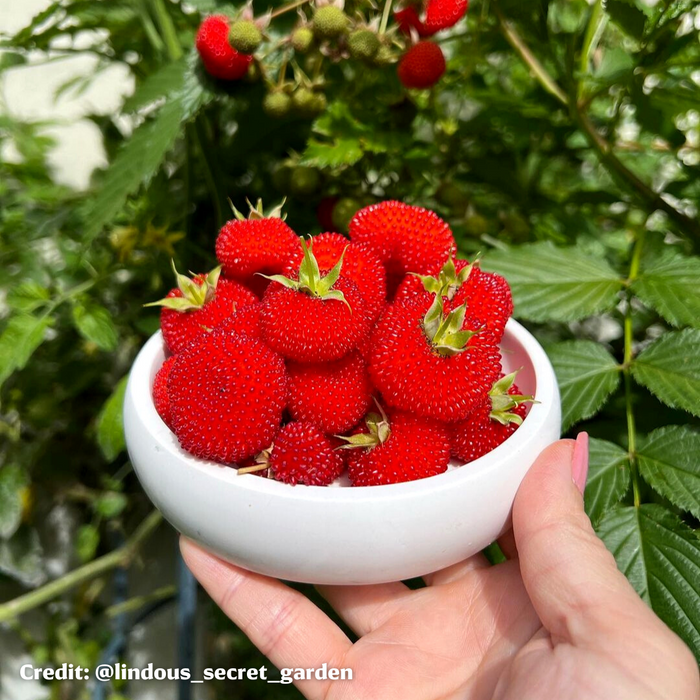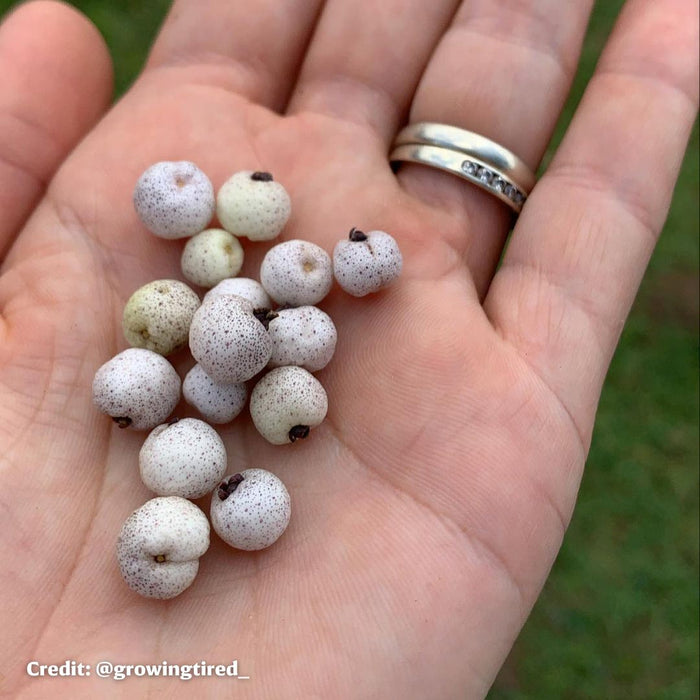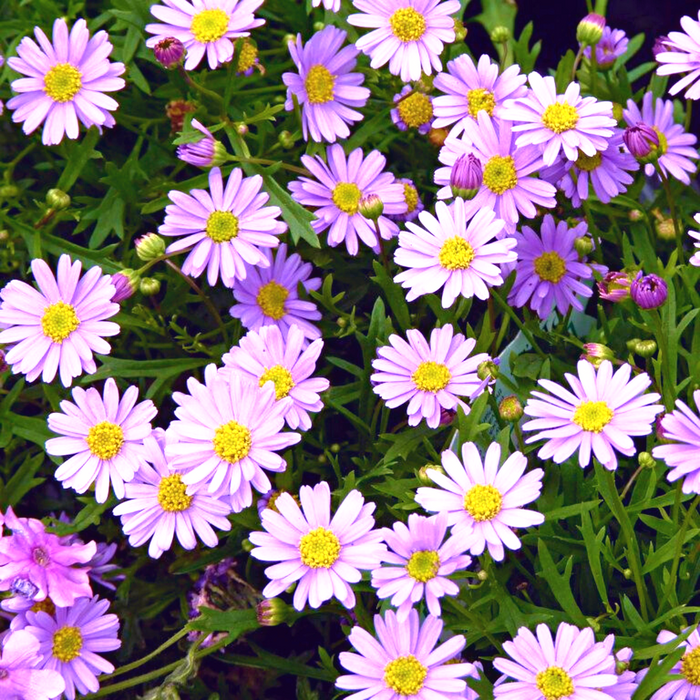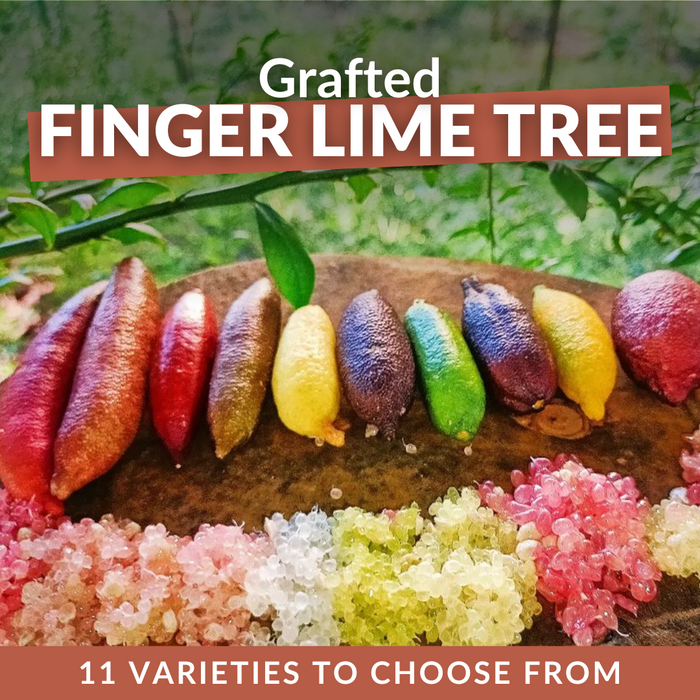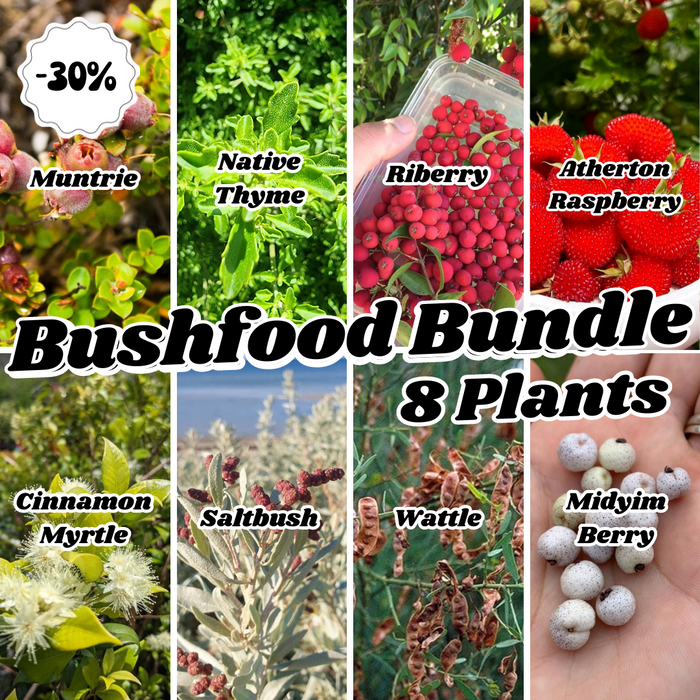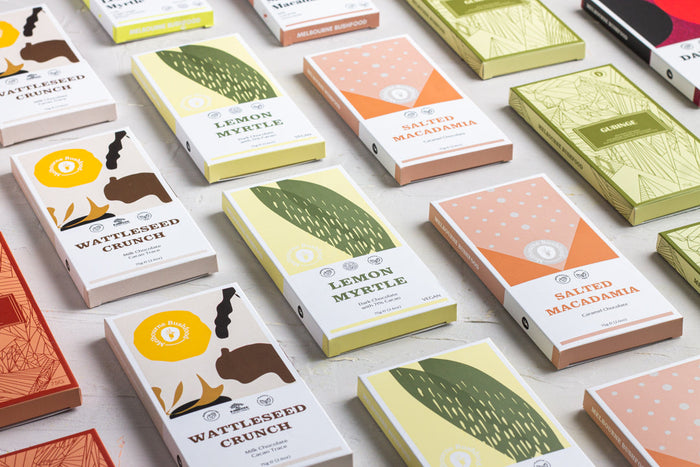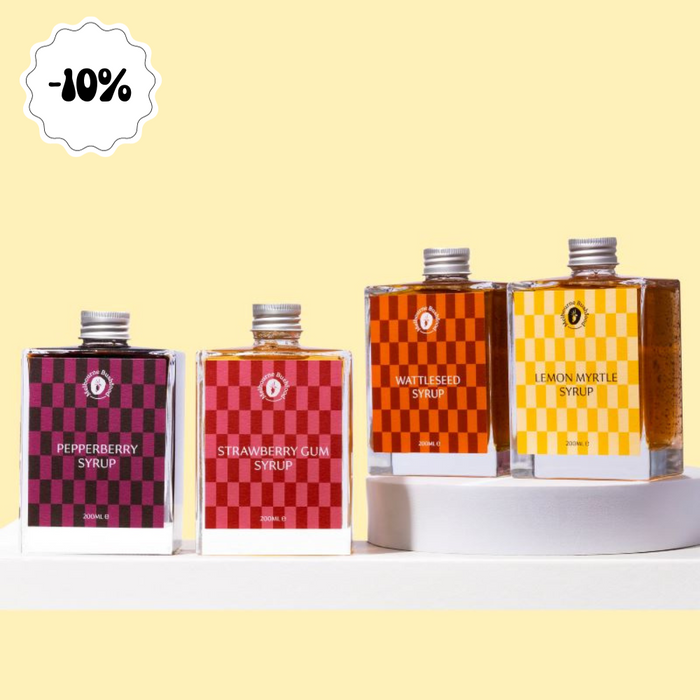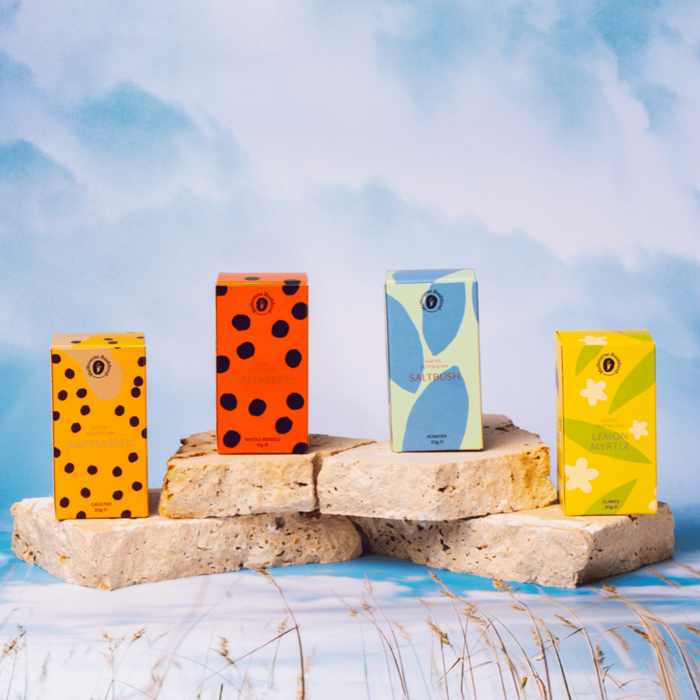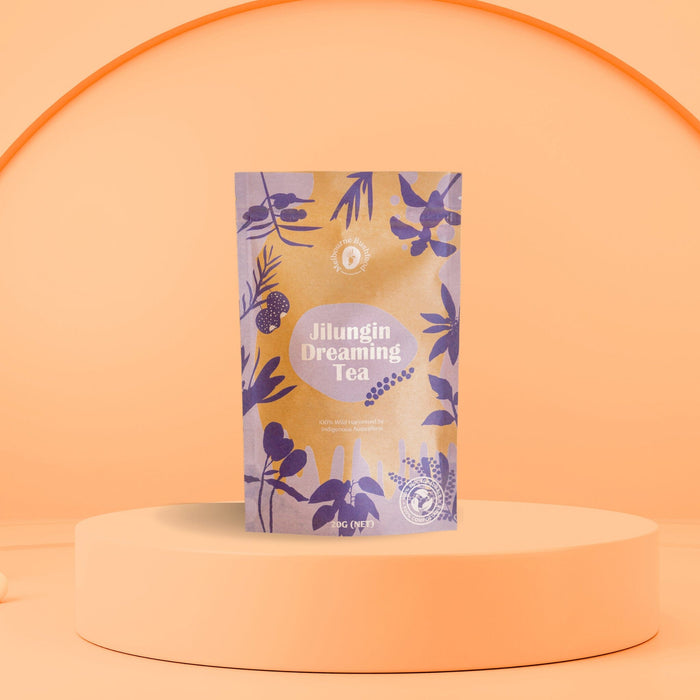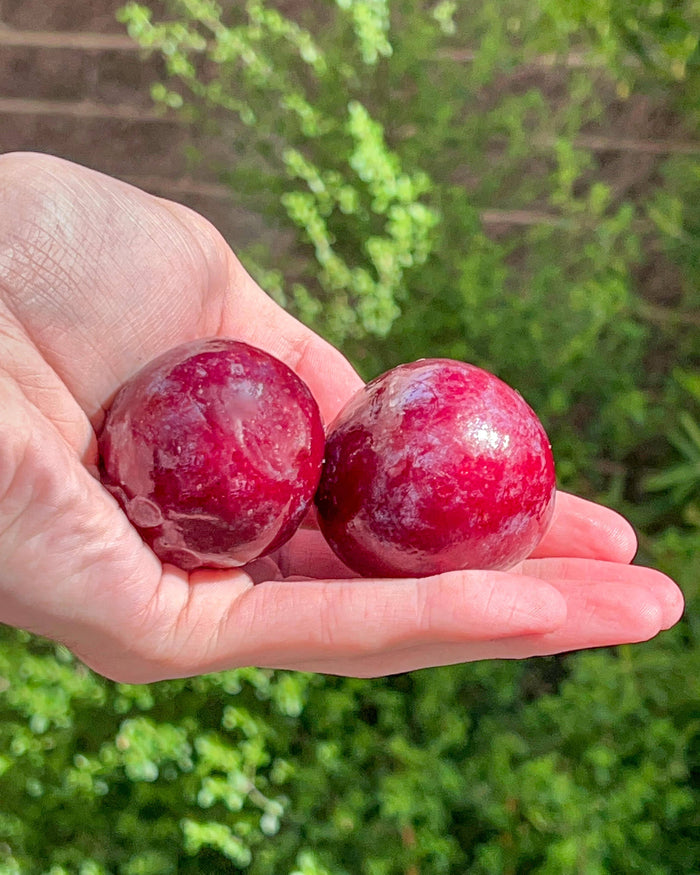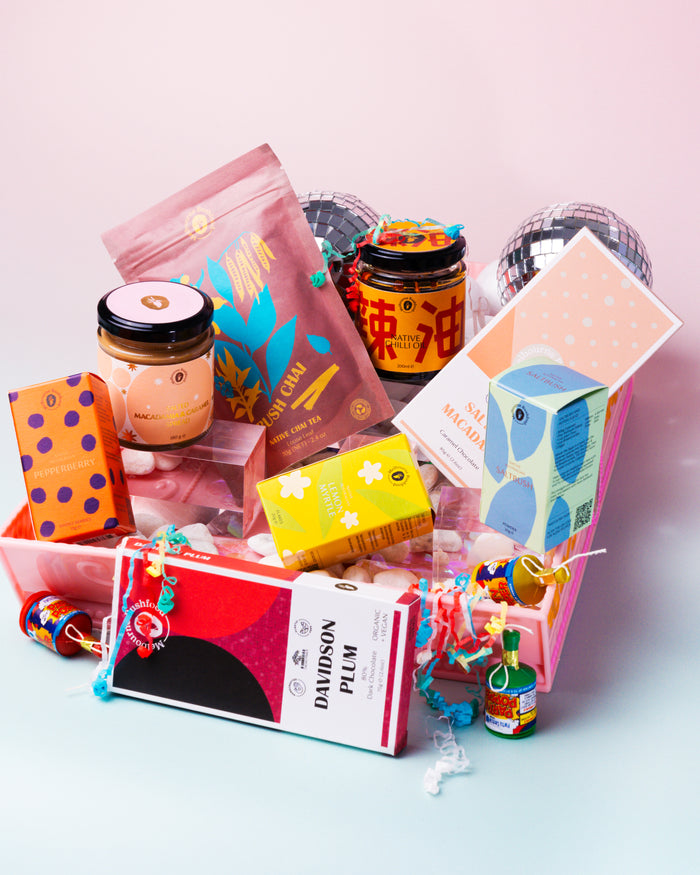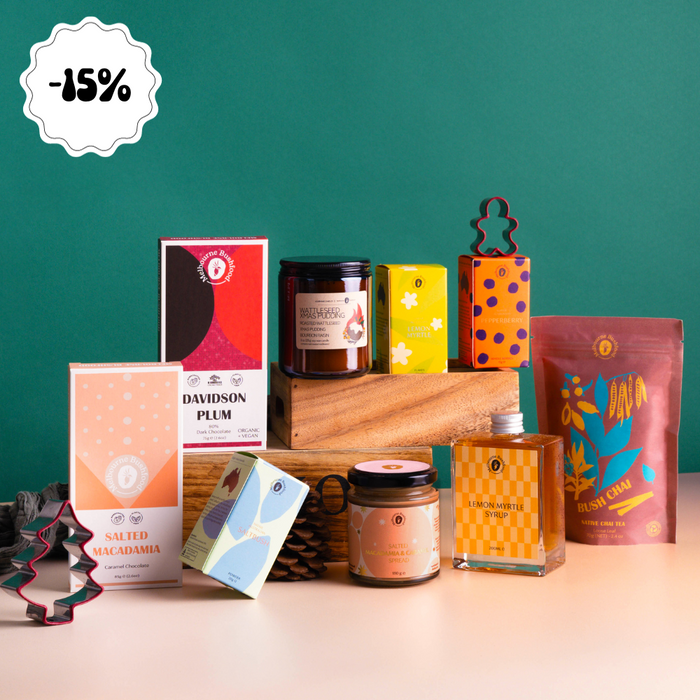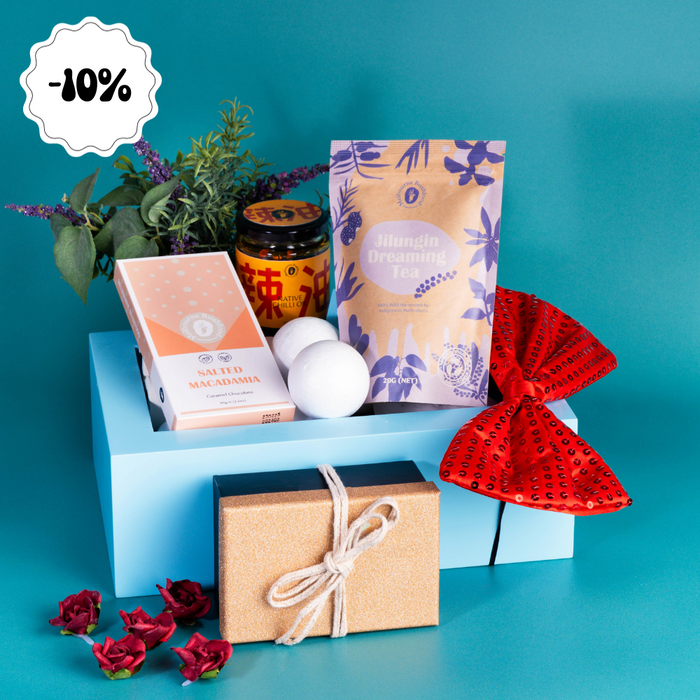Lemon Myrtle
One of Australia's best known bushfoods, Lemon Myrtle is the king (or Queen) of citrus flavourings. It has extensive health benefits, and has been researched for its powerful antibacterial properties.
It can be used on both sweet and savoury dishes. Its deep-green fresh leaves are aromatic, and are the perfect compliment to a refreshing drink.
Health Benefits:
Lemon Myrtle's delectable strength is owed to its concentration of Citral, the compound that gives citrus fruits their citrus flavour. Due to this, it's naturally anti-fungal and anti-bacterial properties have been harnessed for milennia by First People.
- Contains Lutein (for eye health), Calcium (for bone strength), and Magnesium for cell regeneration.
- Powerful antibacterial properties.
Origin:
Native to tropical New South Wales & Queensland, our Lemon Myrtle is organically grown in Western Australia where an invasive fungus, Myrtle Rust, hasn't reached. This means that we can ensure a product that is free from fungicides (which is terrible for your health, and the environment!).
Plus, each purchase is directly supporting a small farmer, helping to boost rural economies and provide sustenance to communities.
Culinary Uses:
Lemon Myrtle is the Queen of all Lemon flavours. It's lemon-lime flavour can be used to sprinkle over fish, poured into baked goods, or even put into a sorbet. The lack of acidity means that it doesn't curdle dairy based deserts, and should be used in place of Lemon Zest, in smaller quantities. It has even been used as a delicious base for kombucha!
Prefer a tea? Check out our Organic Lemon Myrtle Black Tea for a delicious health blend that doesn't compromise on flavour.
Lemon Myrtle
Historical Uses
Indigenous to North-eastern Australia, the tropical-loving Lemon Myrtle is a part of the family Myrtaceae and has been famed for its encapsulating flavour. Used traditionally as an oil, it was used for its antimicrobial and antiseptic properties.
Modern Uses
The small lemon flakes are used in an array of modern cuisine. Due to its high citral content (highest of any plant), it compliments seafood dishes such as calamari and fish, and is exceptional especially once paired with the Tasmanian Mountain Pepperberry.
Recipe Ideas
No Bake Lemon Myrtle & Wattleseed Cheesecake
Crumbed Lemon Myrtle & Pepperberry Fish

